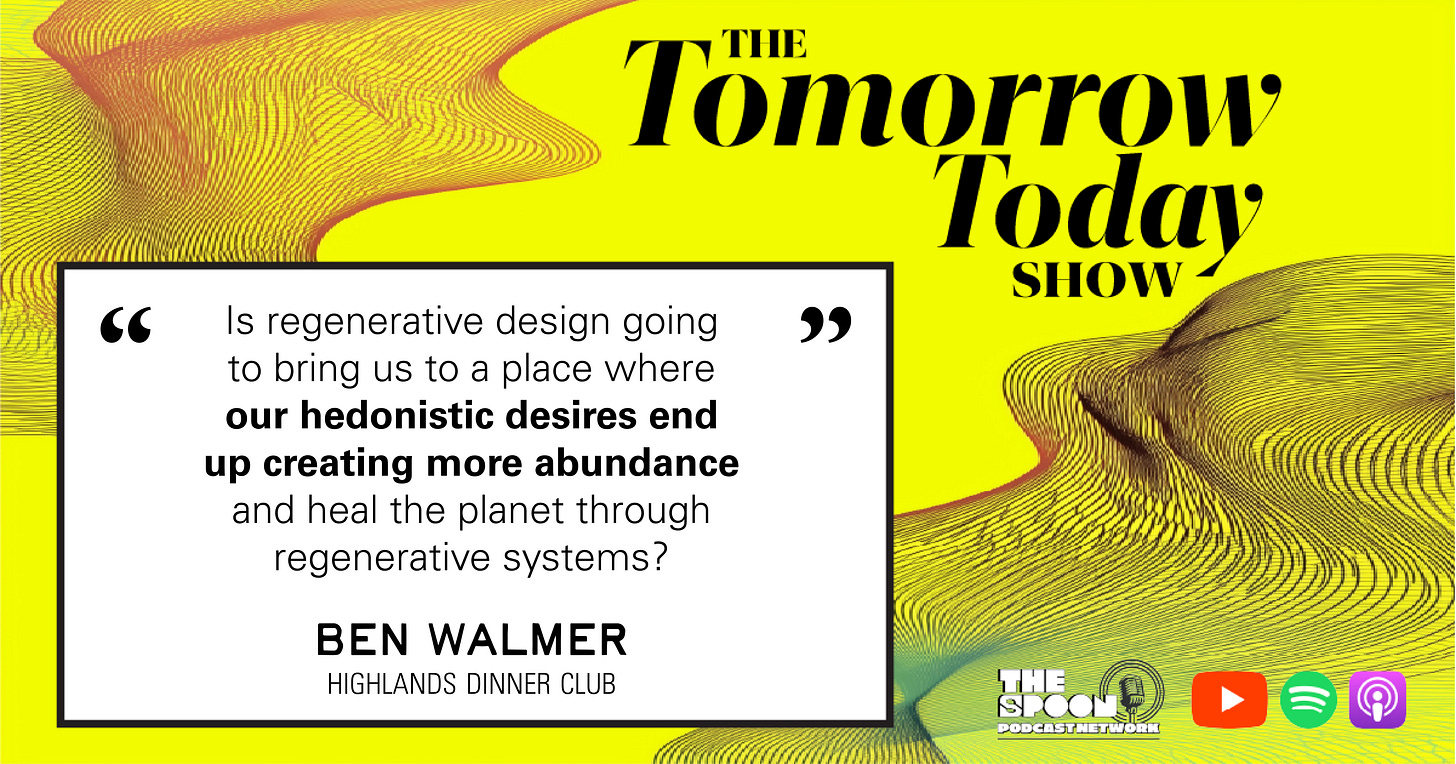The public dialogue about the future of food often finds itself in heady territory. Climate change, obesity, malnutrition, and more. To be sure, these are incredibly important topics that need to be addressed with rigor and honesty.
But there’s one factor that drives a lot of those problems that people don’t talk enough about: hedonism. Because our own personal desires frequently contribute to these issues in the form of carbon emissions, overeating, junk food, and more.
The food system is big and complex but food choices are made by regular people, one bite at a time. And as much as we’d like to wish the public at large makes all their food decisions rationally, that is definitely not the case. You know how I know this? If everyone consumed things rationally, we wouldn’t have the same levels of obesity, malnutrition, alcoholism, or drug abuse we do today.
Something hardwired in our humanity gravitates toward the visceral enjoyment of food and drink. And that’s mostly fine if it doesn’t get out of hand. Because food is life, culture, love, storytelling, and art all rolled into one. This hedonistic instinct shapes markets, drives innovation, and creates culture. Yet, if you listen to talks or read books and articles about serious issues like sustainability and public health, thoughtful examination of our hedonistic impulses is strangely absent.
If we want to seriously address the biggest challenges facing our food system, our planet, and our society, we need to seriously address the mechanisms of our own personal desires.
That is the topic of this week’s episode of The Tomorrow Today Show: The Future of Hedonism. I’m joined by guest co-host Ben Walmer, founder of the Highlands Dinner Club, a renegade outfit of chefs, farmers, makers, and pleasure seekers who create some of the best food events I have ever been a part of.
My other guest co-host is Charles Temkey, a total polymath who was a professional opera singer who sang at the Met Opera, but is also an expert on all things shellfish (especially surf clams), and is an engineering wizard and innovator of artisanal coffee making tools, currently with Flair Espresso.
Finally, the guest of honor is Michael Cirino, the mastermind and ringleader of the House of Attention, a culinary focused experience design studio. Michael is also the founder of A Razor, A Shiny Knife, one of the OG NYC supperclubs from the early 2000s that greatly inspired me.
Our conversation ran the gamut, from how the pleasure principle probably ensured our survival as a species, to the idea that being straight edge could be hedonistic, to the question of whether we can harness our hedonistic impulses to be a force for good in the world, not just self-indulgence.
Yes, we touch on the future of substances like alcohol, marijuana, and magic mushrooms, but that’s not a big part of the conversation. Honestly, I don’t think we need another podcast to tell people that people are drinking less, pot consumption is growing, and mushrooms are pretty interesting. This is not that kind of episode.
Instead, our conversation attempts to dissect the nature of desire and how those desires add up to create systems and culture.
Understanding hedonism isn't just about acknowledging our obsession with pleasure—it's essential to solving the most serious food challenges we face. And we must work with, not against, our fundamental desire for enjoyment to solve those challenges.
I invite you to have a listen and let me know what you think. As always, my email is mike@thefuturemarket.com and I’d love to hear from you. Enjoy.
Thoughts in Progress
Is this the end of long-term thinking?
Big established corporations—especially food ones—have always had trouble thinking and acting long term, as the siren call of quarterly profits and short term wins often dictate how companies move.
But now, with all the chaos Trump’s administration has sent into the financial system with ill advised tariffs and the trade war that follows literally makes it impossible for any company to do long term planning.
In a world where a video game company can’t even launch their next console on time because of tariff uncertainty, how is any food or agriculture company able to confidently roll out a long term investment in regenerative agriculture or carbon capture?
Table for One
A fascinating insight from the New York Times on the relationship between our dining habits, increased isolation, and general unhappiness in our nation. The article even hints at a possible connection between social isolation and radicalization, since those who don’t gather in diverse groups regularly never have to moderate their views.
I mean, we’ve all heard the cliche “you are what you eat,” but are we now living in the “you are how you eat” era?
How I Learned to Stop Worrying and Love the Algorithm
I just started reading Kyle Chayka’s excellent book, Filterworld: How Algorithms Flattened Culture, after discussing it with Kristen Hawley on last week’s episode of The Tomorrow Today Show.
The book talks about how personalization algorithms have grown to rule our lives, picking the content and imagery we see daily. But those algorithms also reinforce a kind of sameness that isn’t always unique or profound, but it just performs well on social media.
This gravitation toward the mean rewards conformity and punishes into internet obscurity those who try to get eyeballs on anything that doesn’t just piggyback onto the prevailing memes and trends of the moment. It’s an especially poignant read in a time when Generative AI, the mother of all algorithms, is becoming more mainstream.
And with food companies like Yum! Brands teaming up with NVIDIA to infuse fast food with more AI, it’s intriguing to think about how Big Food and Big QSR might reinforce or start big food trends in the future.
Thanks for reading and stay tuned to next week for another episode of The Tomorrow Today Show.
P.S.: I did a nice interview here with Mike Wolf of The Spoon about some of the methods behind the madness of [gestures widely] all of this.







